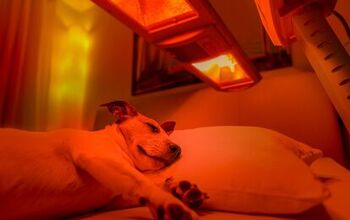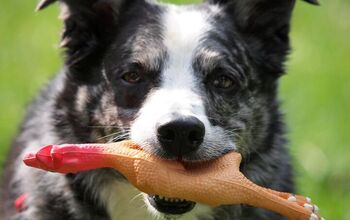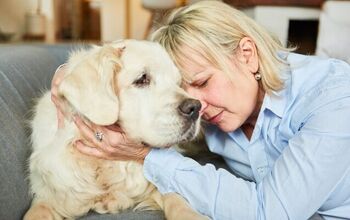Making a Case For Dietary Zinc in Your Dog’s Diet

Zinc is an essential mineral in a dog’s diet. Most commercial dog foods contain the correct amount of supplementary levels of dietary zinc for your dog. Even though this is usually the case, you need to know about zinc, how much your dog needs, why it’s beneficial, and how much is toxic to ingest.
The Benefits of Zinc
Let’s break it down. Zinc is a critical element in the function of cell membranes. It also supports immune responses to disease (which is why it is in throat lozenges). Zinc supports dogs in metabolizing proteins and carbohydrates. Zinc also helps the skin and ensures healthy recovery from wounds. Dietary zinc aids in a healthy full coat, and helps toughen paw pads from the inside out. Zinc can also give your dog improved energy and some reports suggest a better overall mood as well.
Absorption Rate
Studies put the absorption rate of zinc between 5 to 40% – that means a lot of it is simply wasted. Some dogs are genetically predisposed to have issues absorbing zinc, such as Huskies and Malamutes. Likewise, dogs who are fed diets heavy with plants and fiber are at greater risk of lower absorption rates. Calcium can also interfere with the absorption of zinc, as calcium binds zinc. Dogs that are pregnant, very young, have skin problems or are high performance dogs may need more dietary zinc than is available in their diets. Speak to your veterinarian if you have concerns.
Sources of Zinc
Higher concentrations of zinc are found in meat and bone, but zinc can also be found in plants. Beef, chicken, duck, pork and salmon are all excellent sources of dietary zinc for your dog. Fish oil, dosed at 100 mgs per 10 pounds of dog weight, two or three times a week is a good source as well. However, too much fish oil can cause issues with levels of Vitamin E. Kelp and seaweed are good sources of zinc, with the added bonus of supporting the thyroid.
Isn’t Zinc Toxic to Dogs?
You bet it is! Zinc toxicity is more common in smaller breed dogs than larger. Zinc toxicity occurs when a dog absorbs too much zinc, usually by eating something they shouldn’t have. Suntan lotions, some throat lozenges, pieces of jewelry and toys can all be culprits. Symptoms can include:
- Lack of appetite
- Vomiting
- Diarrhea
- Lethargy
- Depression
- Jaundice
- Orange colored feces
If you suspect your dog has eaten something they shouldn’t have, or appears lethargic, get your dog to a veterinarian immediately.
Talk to Your Vet
Most dogs are fine with the amount of zinc they are absorbing from their diet. If your dog is a sport or performance dog, regularly tears paw pads, has low energy or hair loss, you will want to ask your veterinarian about dietary zinc and if you should be using a supplement.

Kevin Roberts lives for adventure. Together with his pack of rescue dogs and his husband, he spends as much time outdoors as possible. Kevin lives by the motto: "Get outside and play with your dogs!
More by Kevin Roberts























